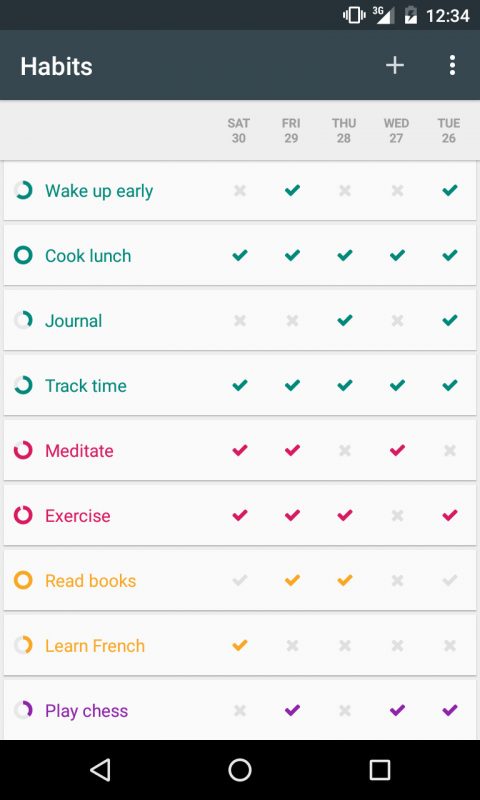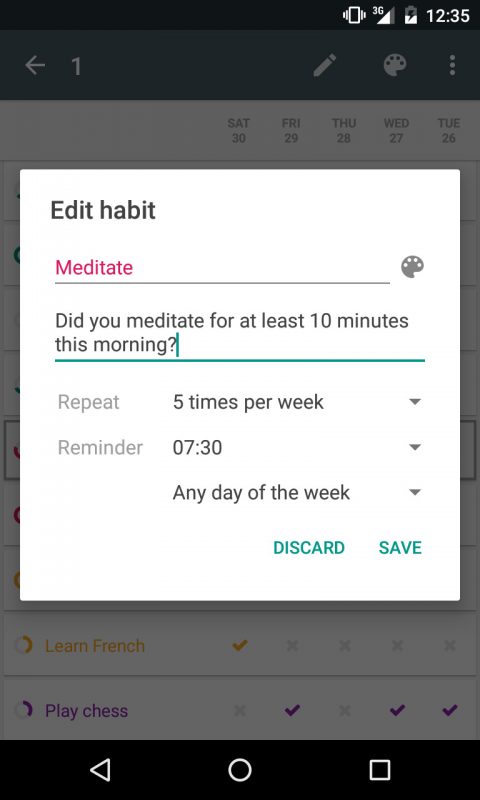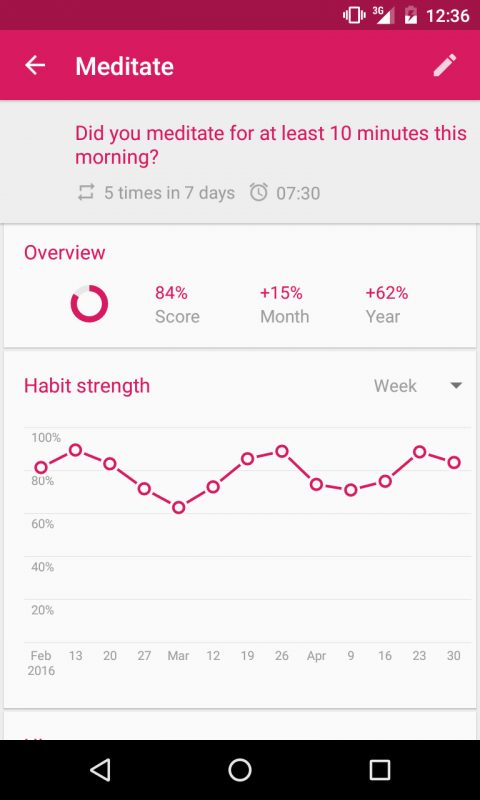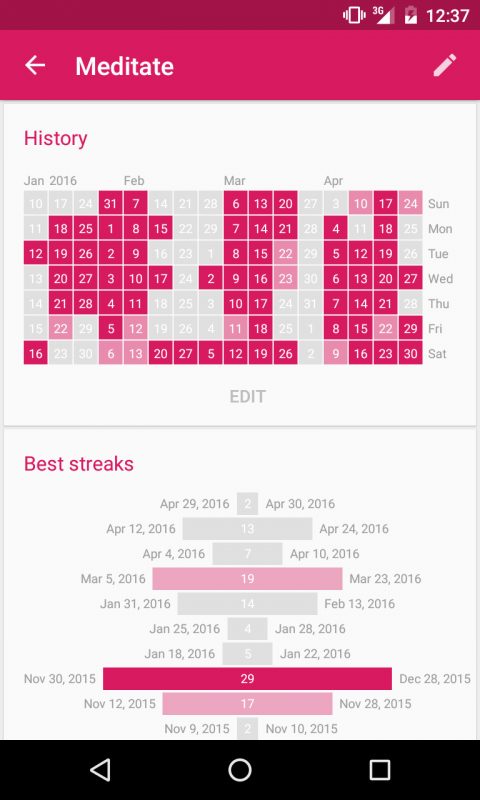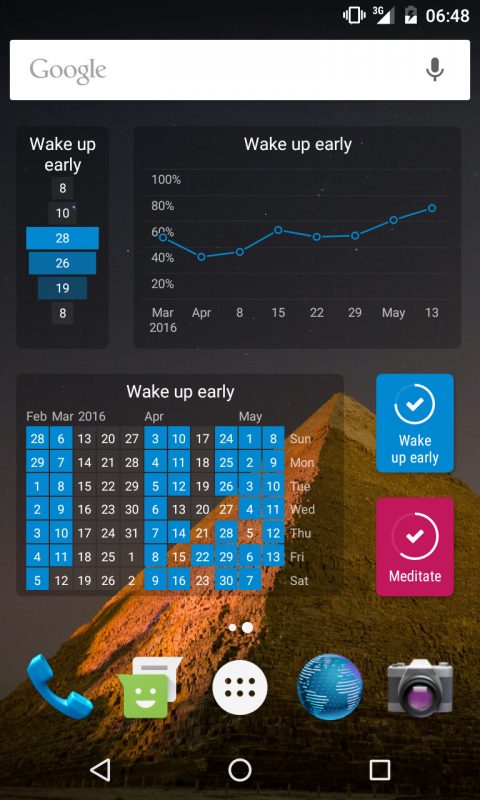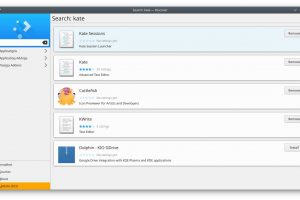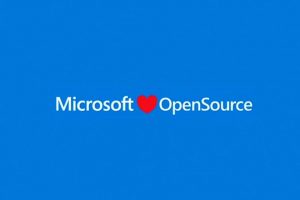It’s the middle of March already. By now, the euphoria and adrenaline from the start of the new year have probably faded. Life has most likely returned to its natural cadence. In other words, this is the time when those new year’s resolutions will be tested the hardest. Whether you’re already well on your way, struggling to keep up, or even still just starting, here are some open source habit trackers that can help turn you into your best self, some in rather interesting ways even.
Habit Tracker versus Time Tracker versus Todo List
There are countless productivity software, both proprietary and open source, that some might confuse a habit tracker for some other tool like a to-do list app or a similar sounding time tracker. To some extent, a habit tracker is a very specialized tool whose entire purpose is to log your progress when performing repeated tasks at set intervals, usually daily.
It isn’t a todo list. A todo list, at its core, simply indicates what tasks have yet to be done. And while many apps allow you to set recurring tasks, very few actually give you insight on your progress on a specific repeated task. Once it’s been checked off, it practically ceases to exists.
It isnt’t a time tracker either, though the two aren’t mutually exclusive. While you may indeed use a time tracker to monitor and log the time you spend on a habit, not all habits take more than a few seconds to accomplish.
Habitica (Android, iOS)
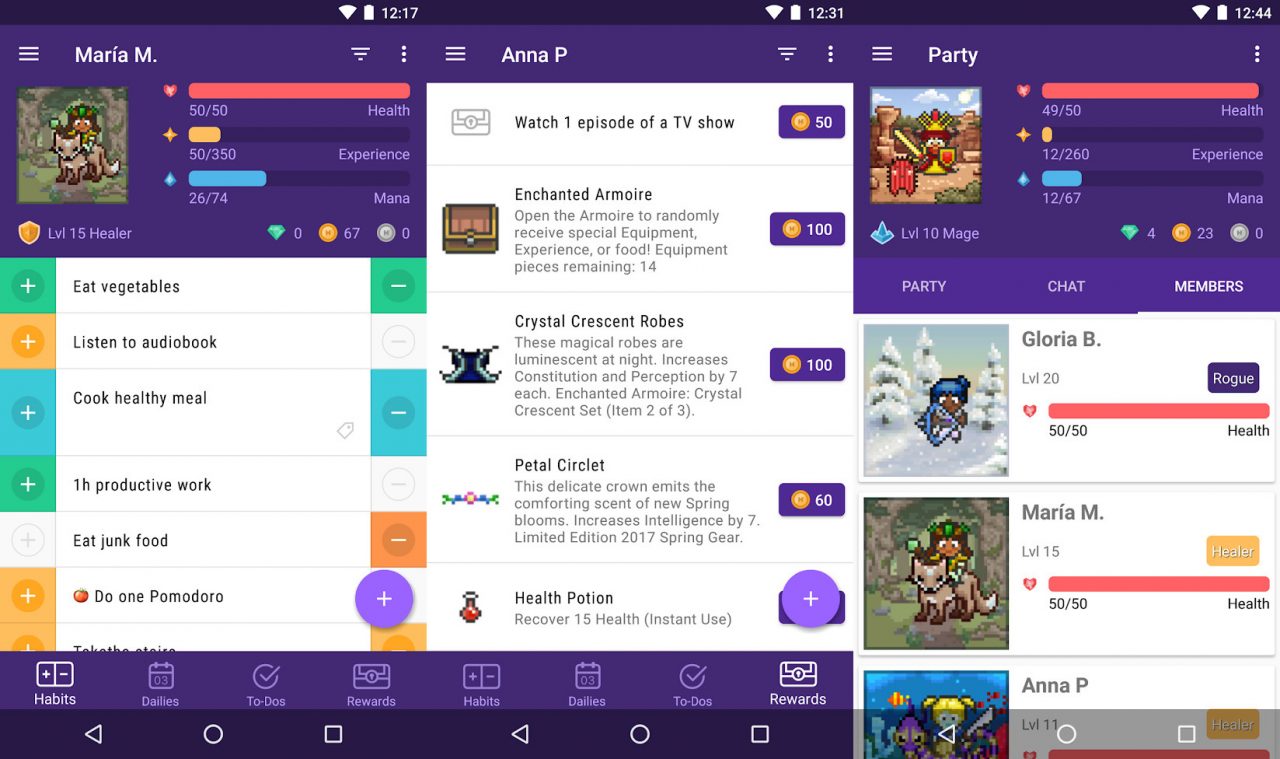
Building habits is often seen as rote, boring, and even painful for some, so why must we make recording them be such a drag as well. Habitica makes habit tracking a bit more interesting and engaging using tested methods of gamification (pardon the term). You create an avatar like you would in a role-playing game and set up habits and todo as quests. You earn in-game rewards to buy more items and can even team up with friends for boss battles.
Habitica is available on Android and iOS. While Habitica does host its own official instance, the source code for both clients and backend are available on GitHub and it’s possible to host your own local instance, albeit with some work.
Habitctl (Linux)

Nothing says “geek” than the command line and when it comes to command lines, Linux’s is the unchallenged champ. Well, except perhaps for BSDs, though they do share some common family traits. If you’re living in the terminal, you probably have no time for fancy GUI apps and heavy web sites. If so, then habitctl might be more to your liking. Mimicking the naming convention popularized by systemd and its kin, habitctl offers fast and quick ways to log your habits and even view them in ASCII tables.
Loop Habit (Android)
On the other hand, you might prefer compartmentalizing and keeping your work life and personal life separate and on separate devices. Or perhaps you prefer to have all your productivity tracking apps just on your Android smartphone. Loop Habit does exactly that. Available on both Google Play Store or the F-Droid open source app market, Loop Habit boasts of a beautiful and fully-featured habit tracking experience without the ads. It even has support for Android Wear smartwatches if you’re into wearables.
Org mode (Emacs, cross-platform)
They say Emacs is a great OS that needs a text editor so why shouldn’t it have a habit tracker as well? Actually, it does thanks to the rather esoteric Org mode. Most often thought of as a todo list manager, Org does have support for tracking habits, which are pretty much a special kind of TODO. What better way of developing the habit of mastering Emacs’ keyboard shortcuts than by using Org mode to track your habits. Available anywhere Emacs is available which is practically everywhere.
Flow (Web)

On the other end of the spectrum, Flow pulls out all the fancy stops. A web app that, at least in theory, should work anywhere and everywhere, Flow includes not just simply habit tracking but also personal analytics and integration with services like Slack and Google Assistant. The one catch? It uses Google’s Cloud Platform for its backend, whether you host it yourself or the developer’s instance. It does promise that the data is yours and yours alone, but it’s something you’ll want to keep in mind. The code is, of course, open source.
